This exhibition brings together black-and-white masterpieces from the
Bibliothèque nationale de France’s photographic collections.
Nadar, Man Ray, Ansel Adams, Willy Ronis, Helmut Newton, Diane Arbus, Mario
Giacomelli, Robert Frank, William Klein, Daido Moriyama, Valérie Belin...: the
great names in French and international photography are brought together
in an itinerary that presents some 300 prints and covers 150 years of blackand-
white photography’s history, from its origins in the 19th century to
contemporary creation.
Black and white is indissociable from the history of photography: its evolution, from
the late 19th century to the present day, has confirmed its visual power. When use
of colour became increasingly common in the 1970s, black and white reinvented
itself as a recognised means of aesthetic expression focusing on graphic design
and material. Black-and-white photography is less expensive and much simpler,
of course, but its continuing endurance may above all be explained by the fact
that it embodies the very essence of photography. It has a universal dimension,
a timeless, even commemorative aspect to it, whereas colour only seems able to
express the contemporary world.
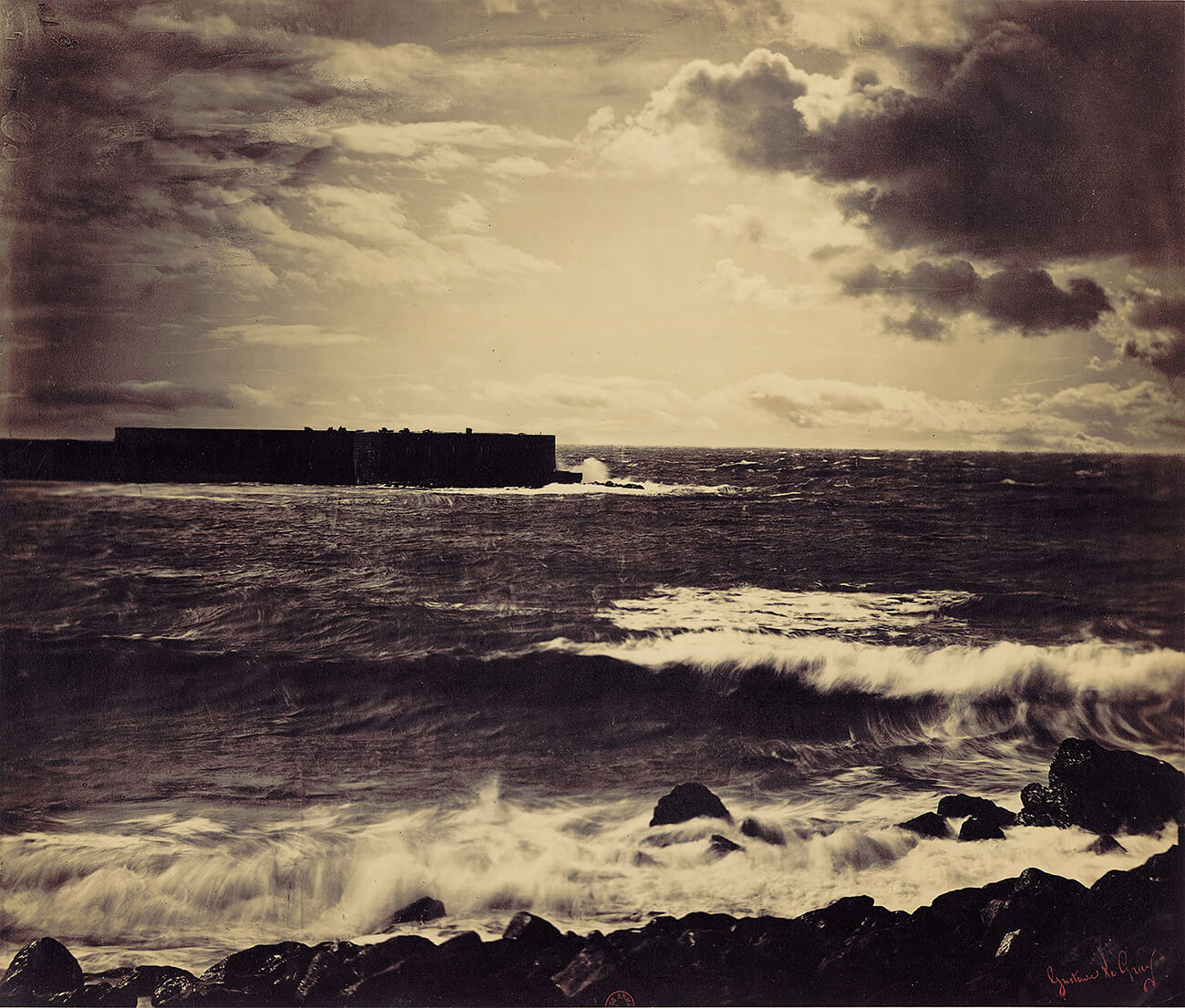
© Gustave Le Gray. La Grande vague - Cette [Sète] - n°17, 1857, BnF, Estampes et photographie
The exhibition addresses the question of black and white from an aesthetic, formal
and sensory viewpoint, with the emphasis on modes of image creation: visual and
graphic effects of contrast, plays of shadow and light, rendering of materials in the
full palette of black and white values. It focuses on photographers who concentrated
or systematised their artistic creation in black and white, experimented with
its possibilities and limitations, or made it the very subject of their photographic
practice, such as Man Ray, Ansel Adams, Ralph Gibson, Mario Giacomelli and
Valérie Belin.
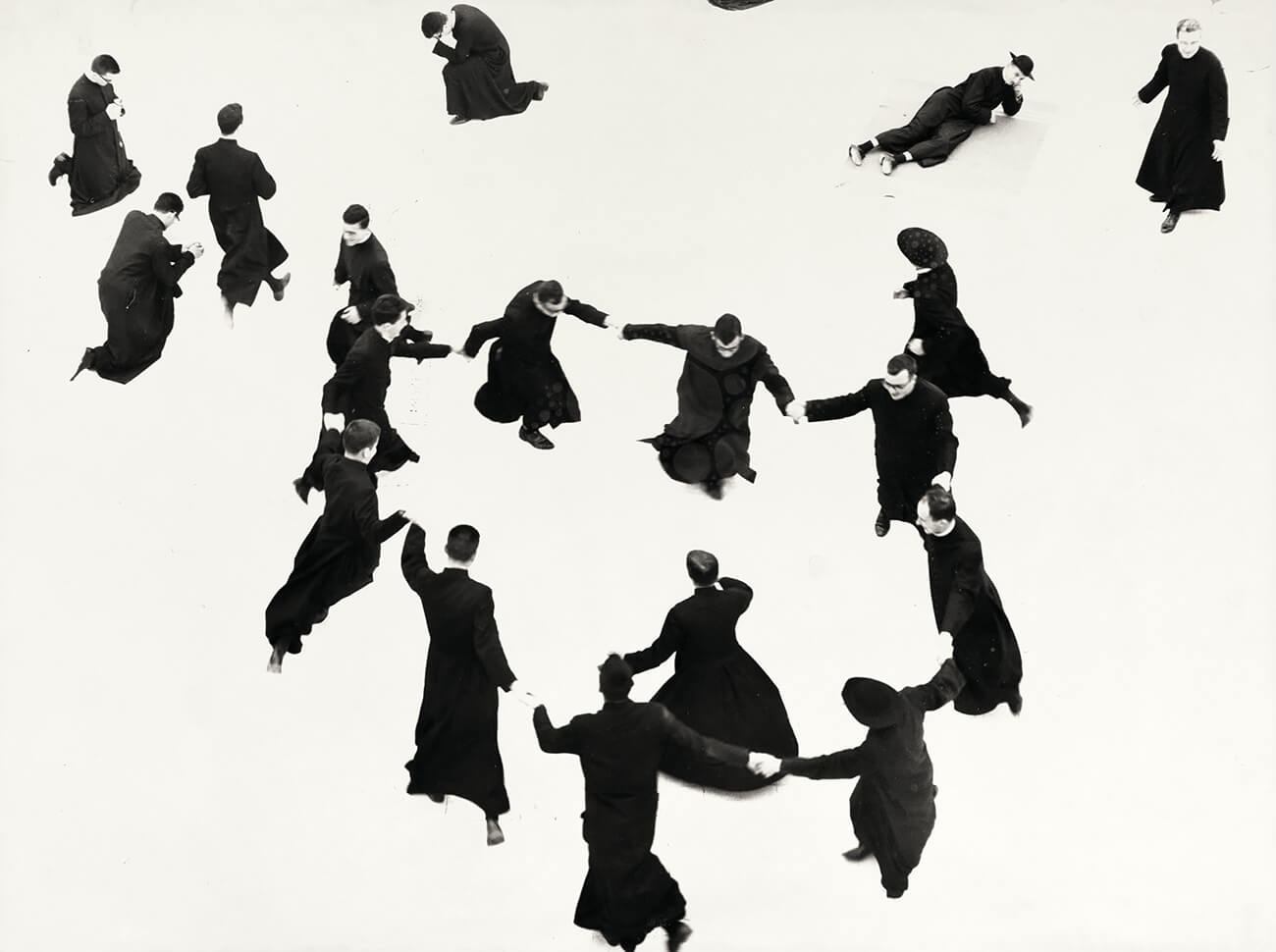
Je n’ai pas de main qui me caresse le visage, 1961-1963, BnF, Estampes et photographie © Archives Mario Giacomelli - Simone Giacomelli
Special attention has been paid to print quality, variety of techniques and photographic
papers, and to black-and-white printing, as books and magazines were
once the primary conduit of photographic creation to the public at large.
When colour photography processes were first marketed in 1907, to become
widespread with chromogenic photographs in the second half of the 20th century,
it could well have spelt the end of black and white. After all, ever since photography’s
beginnings, reproduction of natural colours was what every inventor aspired
to. Nevertheless, monochrome photography has stood its ground. In the middle of
the century, whether due to technical or economic constraints, black-and-white
photography became a real artistic choice, whereas colour was the province of
amateurs, advertising and the press. Deemed elitist and backward-looking by
some, its defenders see it as a guarantee of graphic and visual excellence, of
poetry, symbolic distancing and universality: for them, it is what photography
means.
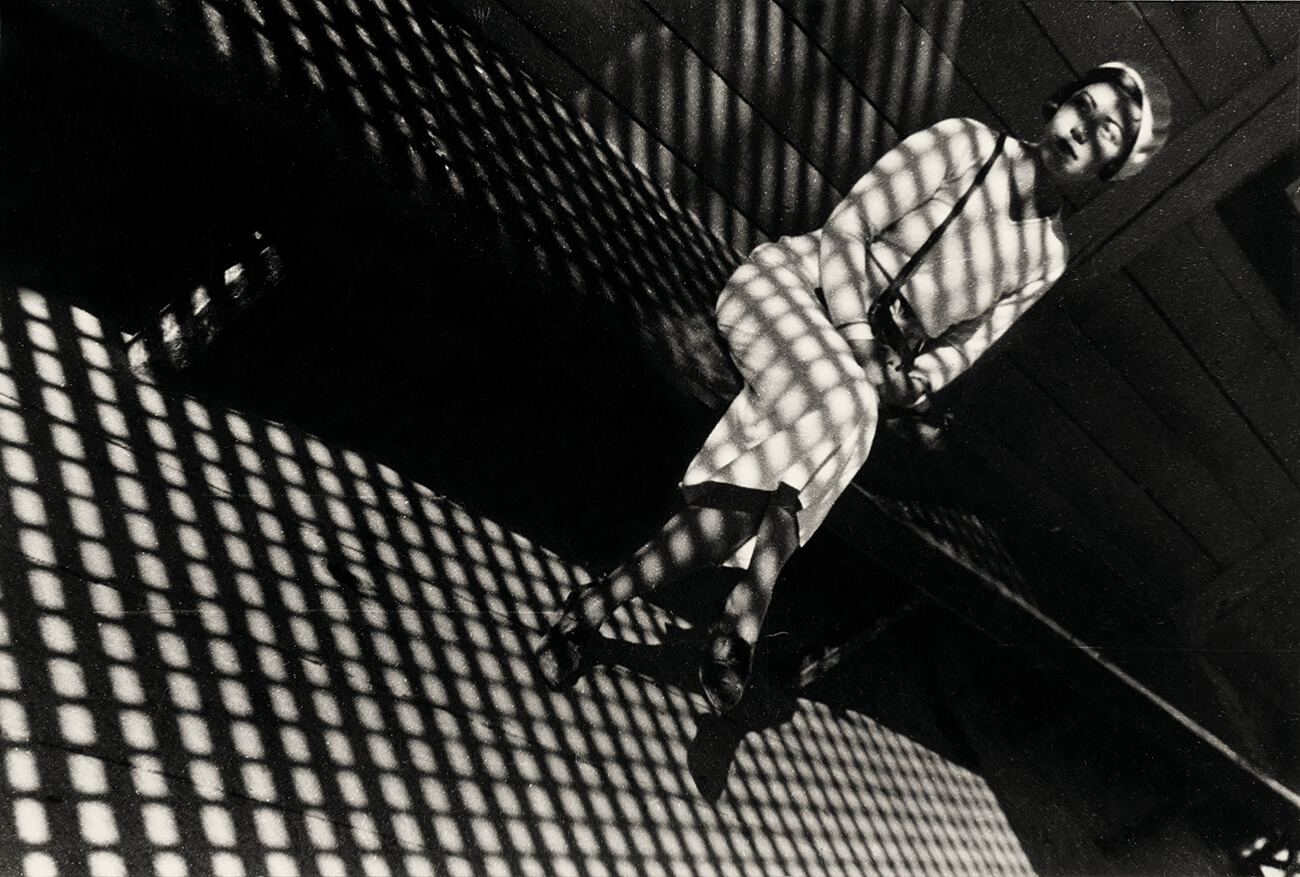
Alexandre Rodtchenko, Jeune fille au Leica, 1934, BnF, Estampes et photographie © ADAGP, Paris 2023
The Bibliothèque nationale de France has always been and will remain one of the
leading collectors of these black-and-white works. In the 1970s and 1980s, it lent
its support to their creators in the face of the visual intoxication brought about
by colour. These days, it supports the revival of monochrome practices, analogue
photography in particular.
Black-and-white photography is one of the BnF’s collections’ fortes and the
exhibition presents a wide variety of uses, subjects and signatures, providing a
resolutely formal overview of these priceless works. Confronting eras, trends and
techniques with each other, it addresses the works of 207 photographers from 37
countries from the viewpoint of their black-and-white expression, without regard
for chronology. By presenting famous and lesser-known photographs side by side,
it underscores their common stylistic features: contrasts, shadow and light effects,
and renderings of materials through a palette of halftones. By its very profusion, it
helps visitors perceive the full power and creative vibrancy of black and white.
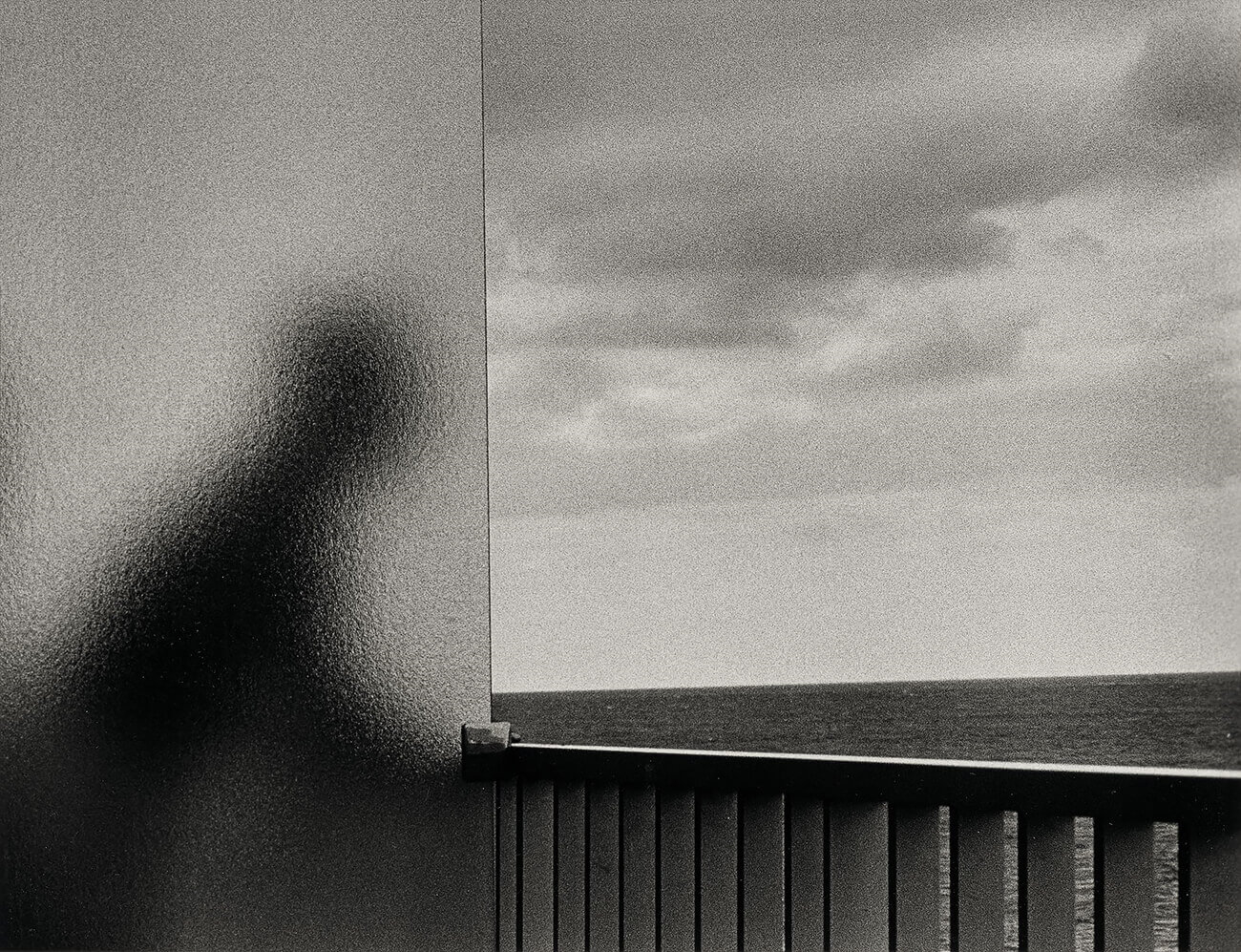
André Kertész, 1er janvier 1972 à la Martinique, 1972, BnF, Estampes et photographie © Centre Pompidou, MNAM-CCI, Dist. RMN-Grand Palais / Philippe Migeat
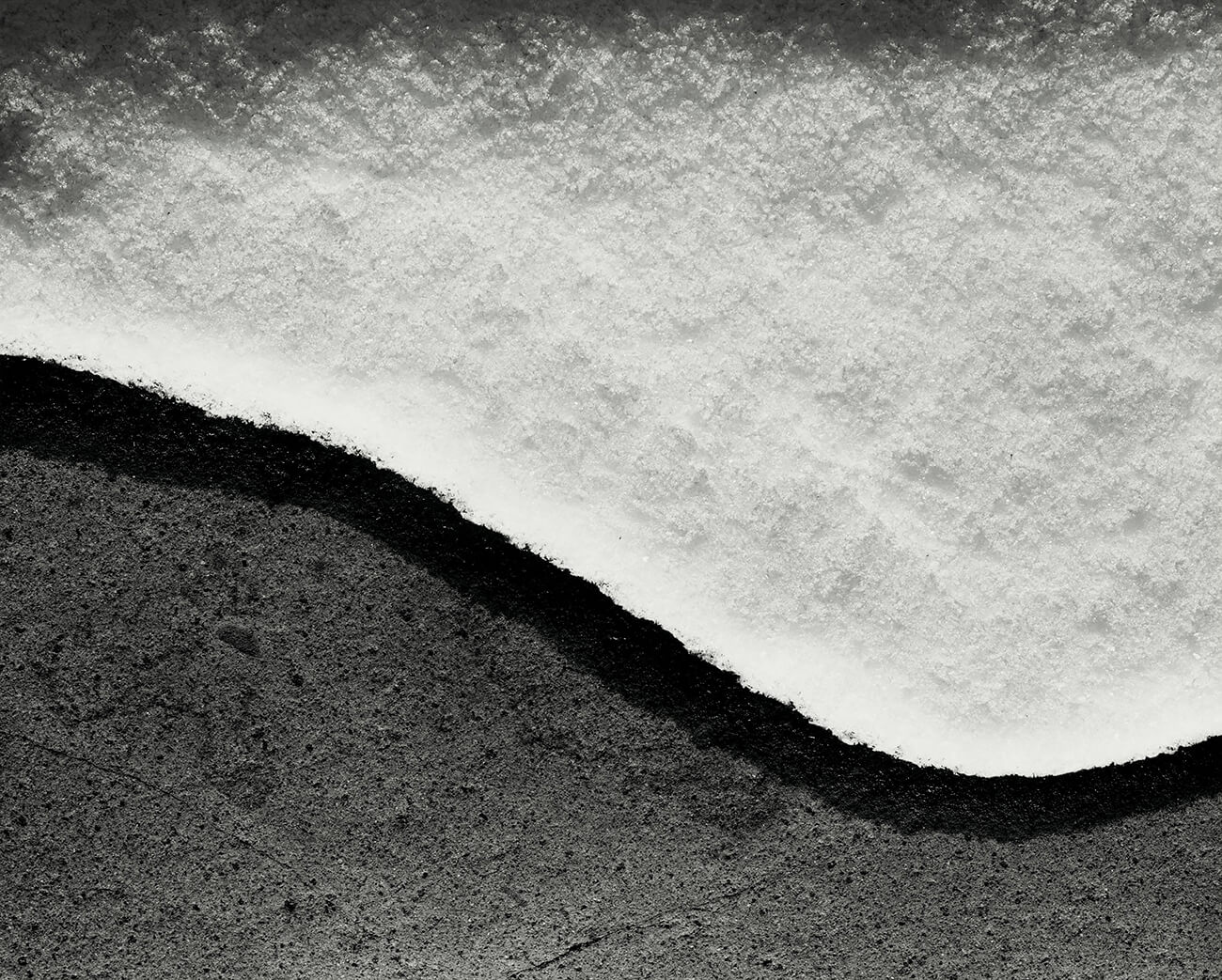
Melting Snow on a Rock, Nagano, Japan, 1988, BnF, Estampes et photographie © Koichiro Kurita
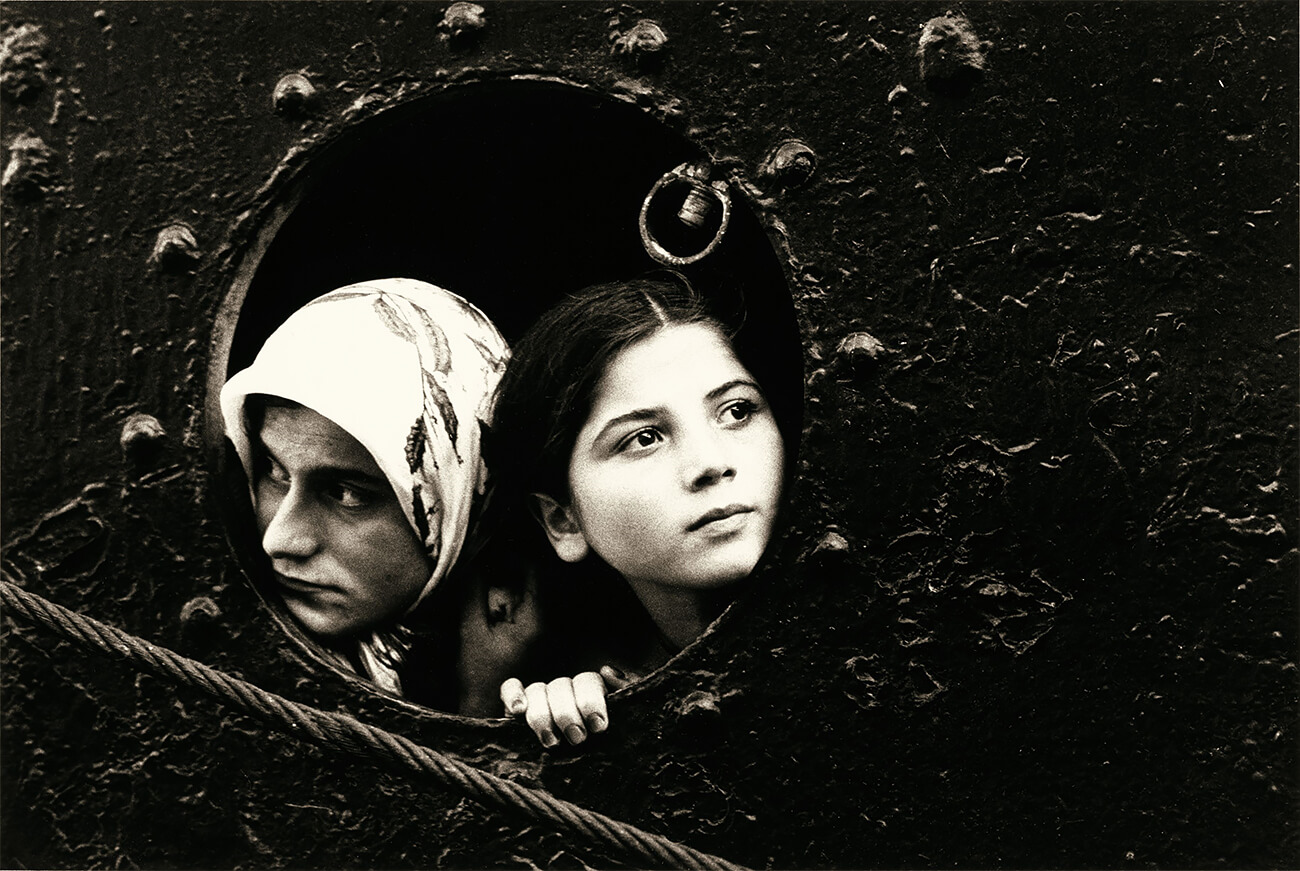
Immigrants, Istanbul, Turquie, vers 1977, BnF, Estampes et photographie © Mary Ellen Mark/ The Mary Ellen Mark Foundation
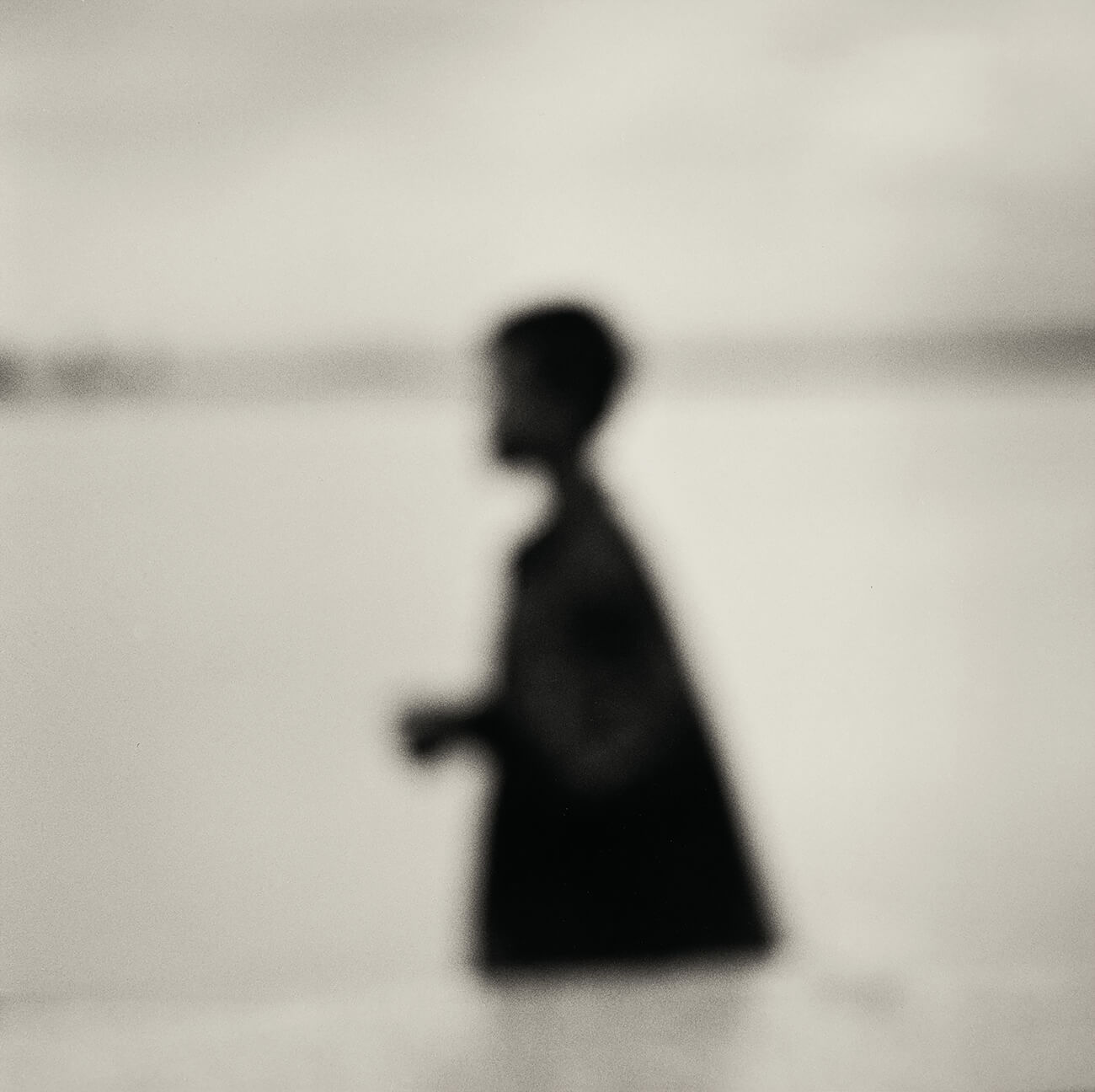
Chéa, Cambodge, de la série « Rithy Chéa Kim Sour et les autres » ,, BnF, Estampes et photographie © Laurence Leblanc, courtesy Galerie S.
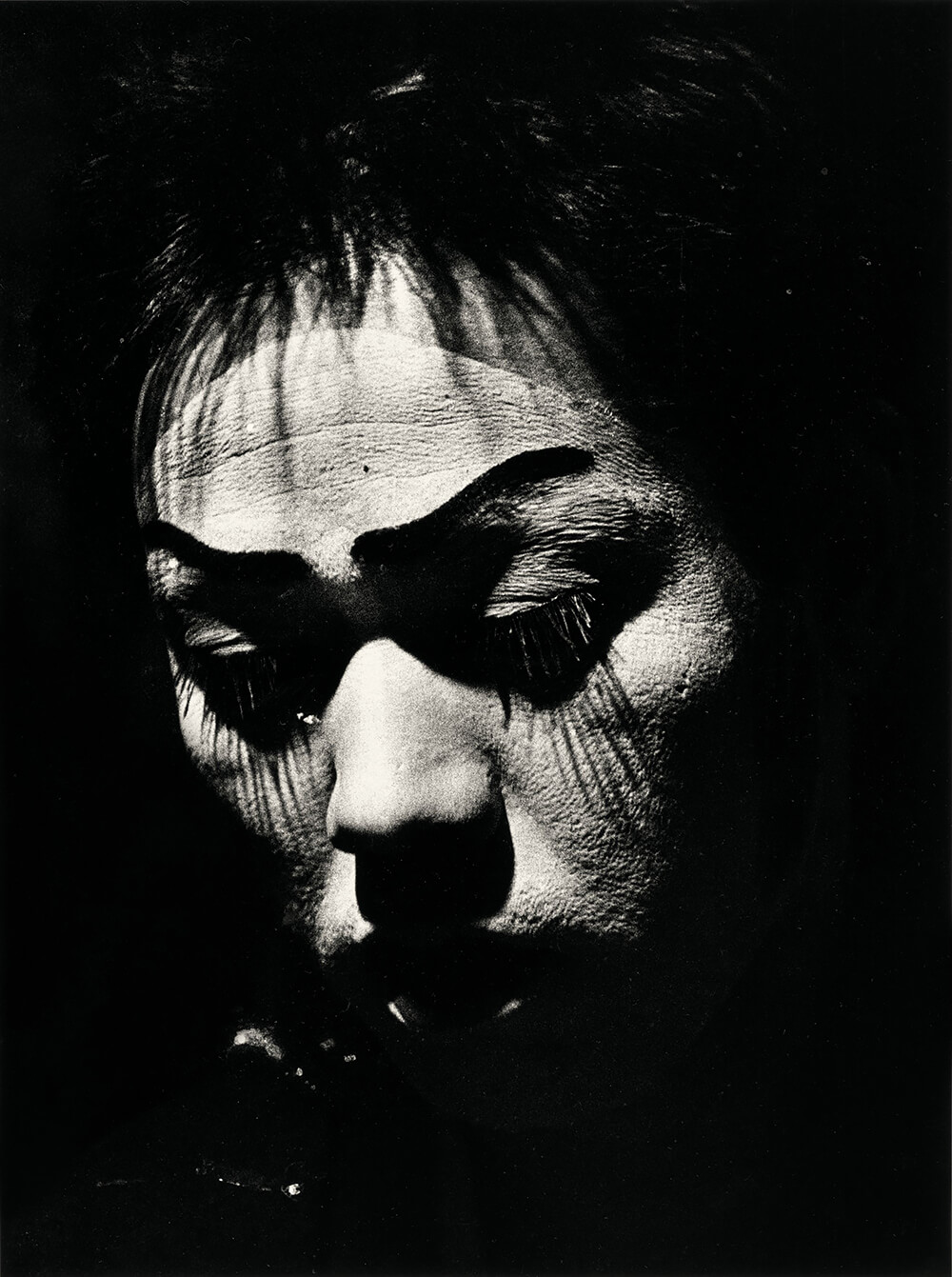
Portrait d’acteur de la série Théâtre japonais, 1968, BnF, Estampes et photographie © Daido Moriyama Photo Foundation.
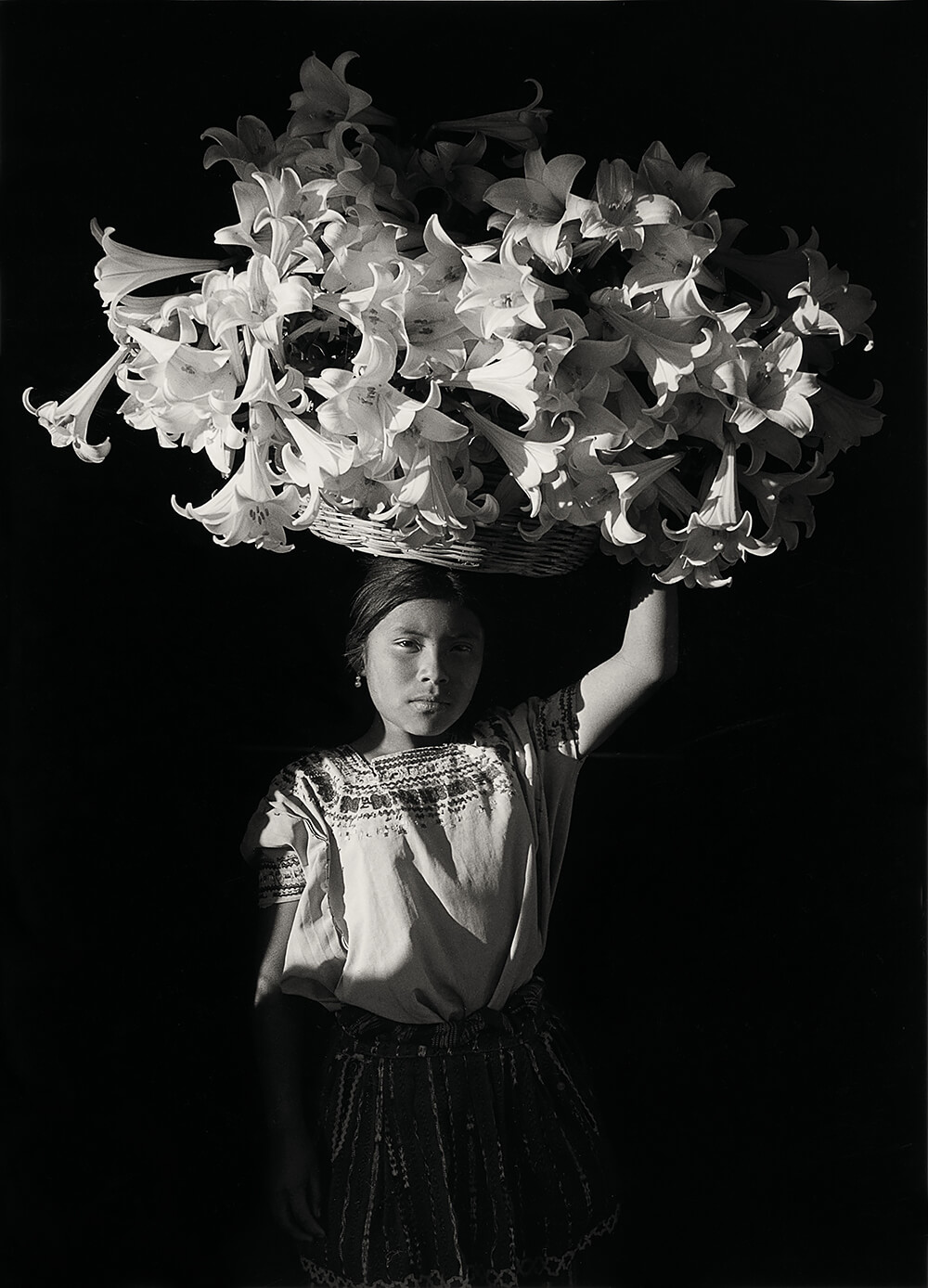
Canasta de Luz, Corbeille de lumière d’époque, 1989, BnF, Estampes et photographie © Flor Garduño










